If you are looking wholesale lighting solutions, click here.
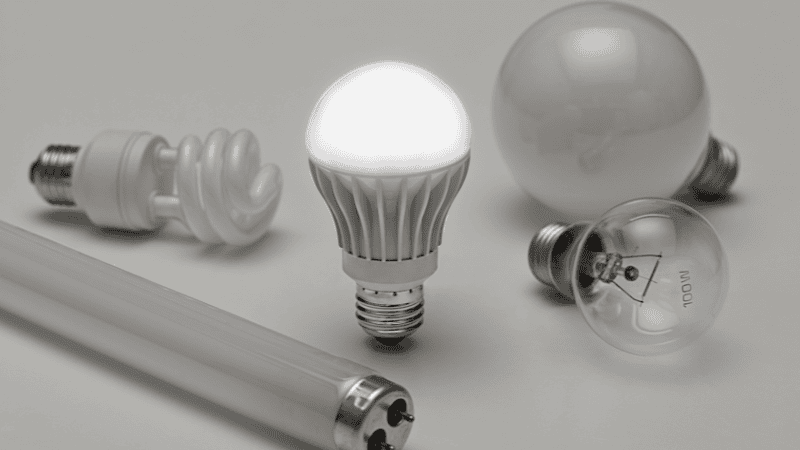
Tired of your house looking dull and meek. Would you like to make it stand out? Simple, all you need to do is invest in an LED light solution. How does that help?
LED lighting has now become the go-to choice for a lot of owners who want to make their houses look more appealing while also reducing their energy bills.
Moreover, because of their long lifespan and usability, they make for an attractive solution for most houses.
But, like most things, there are a few disadvantages of LED lights that can have a great impact on your experience. What are they? If you want to know, then continue reading.
If you are unfamiliar with LED lighting. These lights have a light-emitting diode that uses semiconductors to create light when electricity passes through them.
This process is completely different from the traditional incandescent bulbs, which rely on heating filaments to create light.
Moreover, LEDs are able to produce light more efficiently with much lower energy consumption. Making it more energy-efficient than its counterparts.
Plus, LEDs can last up to 25,000 to 50,000 hours compared to incandescent bulbs, which last 1,000 hours, and this adds to the advantages of LEDs.
One of the main advantages of LED lights is their energy efficiency. LED bulbs use much less electricity than incandescent and CFL bulbs, making them a smart choice for homeowners who want to lower their energy bills.
In addition, LEDs convert almost all the energy they use into light rather than heat. This means they waste very little energy while still providing bright illumination.
For those looking to reduce their carbon footprint, LED bulbs are also a more eco-friendly option. They use up to 80 percent less energy than traditional incandescent bulbs.
Even though most LED lights have a much higher upfront cost compared to traditional light bulbs. But because of their long-term savings, LEDs are a much more worthwhile investment.
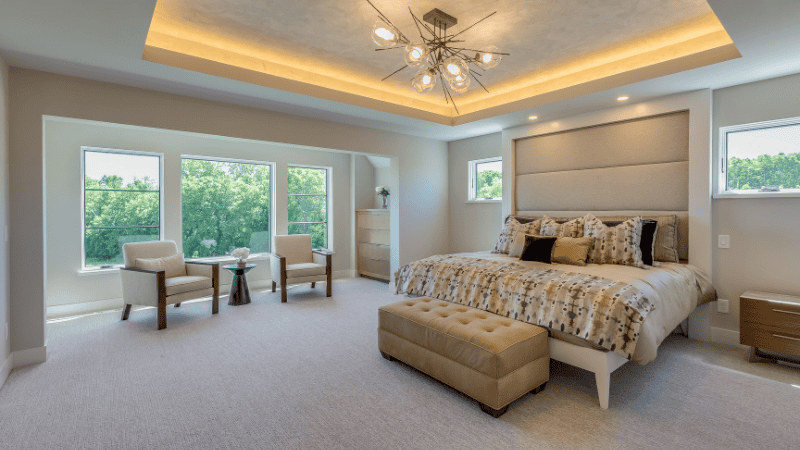
Moreover, since these bulbs are energy-efficient, they aid homeowners by greatly reducing their utility bills, which is why LEDs are a much more cost-effective option in the long run.
Do you like waiting for your room to become bright enough to see clearly? Of course not. But that’s often the case with traditional bulbs, which need time to warm up before reaching full brightness.
LED lights, on the other hand, turn on instantly. As soon as you flip the switch, the room is fully lit. This is especially useful in places where immediate lighting is important, such as bathrooms, kitchens, or outdoor areas.
Another benefit of LED lights is their versatility. They can be used in many different ways and are available in a wide range of colors, shapes, and sizes. This makes it easy to find the right lighting solution for any area of your home.
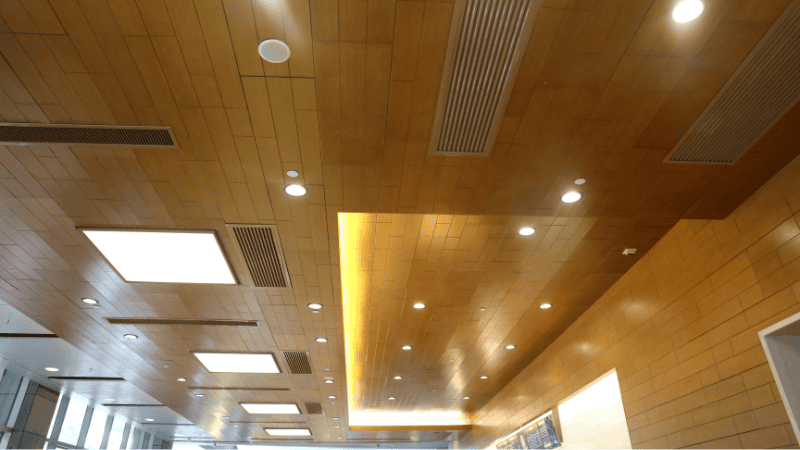
LEDs are also suitable for outdoor use and commercial spaces, making them a flexible choice for many settings.
Whether you need under-cabinet lighting in the kitchen or soft ambient lighting in the living room, LED lights can provide the perfect solution.
LED lights are also really environmentally friendly. How so? First, they don’t use any mercury like the CFL bulbs, which can be really harmful if they break or aren’t disposed of correctly.
This is compared to the fact that LEDs are fully recyclable, which makes them a better option for homeowners who want to reduce their environmental impact.
Another advantage of LED lights is their durability, making them a great choice for high-traffic areas and outdoor use. Unlike traditional bulbs, LEDs are built to resist shattering and can handle impacts, vibrations, and extreme temperatures.
This tough design makes them ideal for places like garages, outdoor lighting, and workshops where lights are more likely to face wear and tear.
While LED lights are highly efficient, they can be sensitive to high temperatures. Too much heat can affect their performance and shorten their lifespan. When exposed to extreme heat, LEDs may lose brightness and wear out faster.
So, how can you prevent this? First, install LED lights in well-ventilated areas and keep them away from objects that generate heat.
Also, avoid using enclosed fixtures in hot spaces, as this can trap heat and cause the bulbs to overheat. This is one of the few drawbacks of LED lighting.
One more downside of LED lights, especially the ones with higher color temperatures like cool white or daylight, is that they led lights produce blue light and light pollution.
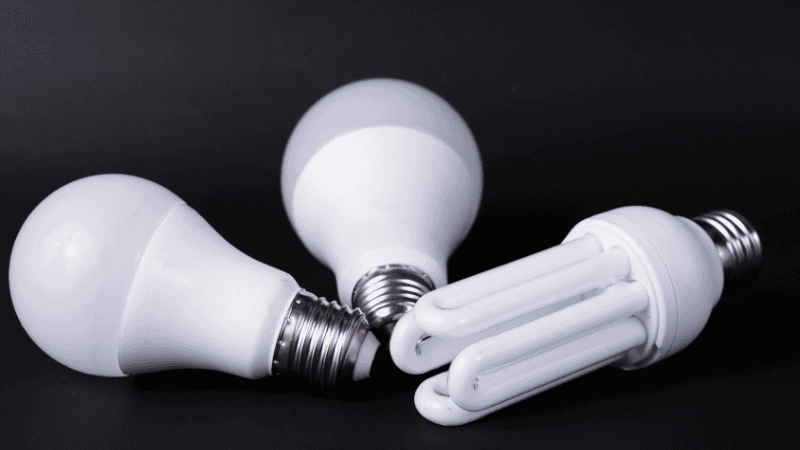
Why is this a problem? Blue light from some LED bulbs is very intense and can disrupt your sleep and strain your eyes. This is one of the biggest downsides of LED lighting, especially if you’re using it at night.
The longer you’re exposed to blue light, the more it can interfere with your body’s natural melatonin production, making it harder to fall asleep and stay rested.
To protect your sleep and well-being, the International Dark Sky Association recommends choosing LEDs with lower color temperatures, like warm white. These softer lights are much gentler on your eyes and better for evening use.
In many cases, LED lights can be sensitive to voltage fluctuations. If you use them with the wrong dimmer switches, they may start to flicker, buzz, or even fail completely. This can also lead to poor light quality.
To get the best performance from your LED lights, always use dimmers that are compatible with LEDs. This helps avoid flickering and other issues caused by voltage problems.
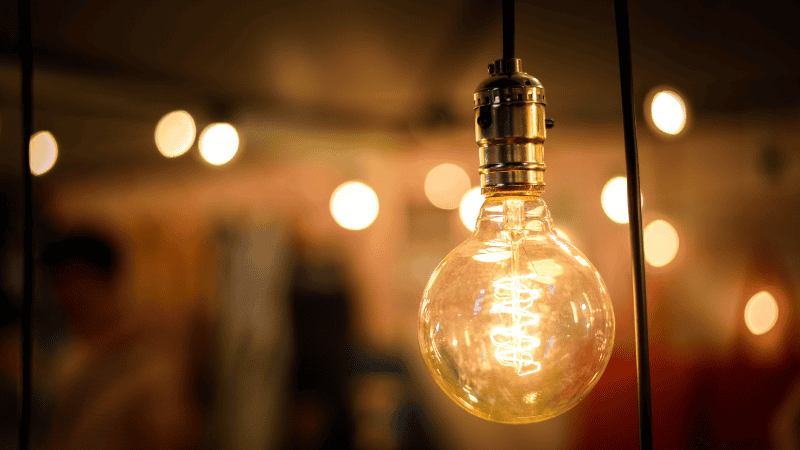
You can also install a surge protector to reduce the risk of damage from electrical spikes and keep your lighting consistent and reliable.
While LED lights can brighten a room instantly, they do have a limitation when it comes to how the light is spread.
What does this mean? Unlike traditional bulbs that shine light in all directions, LEDs produce a more focused beam. This makes them great for task lighting or accent lighting, but not always ideal for general room lighting on their own.
If you want more even and balanced lighting in a space, you may need to combine LED lights with other light sources or use diffusers to help spread the light throughout the room.
A thing that makes most people step away from investing in LEDs is their higher upfront cost compared to traditional light bulbs like incandescent or CFL. This can be a major issue for homeowners who are renovating their homes and want to replace all of their bulbs.
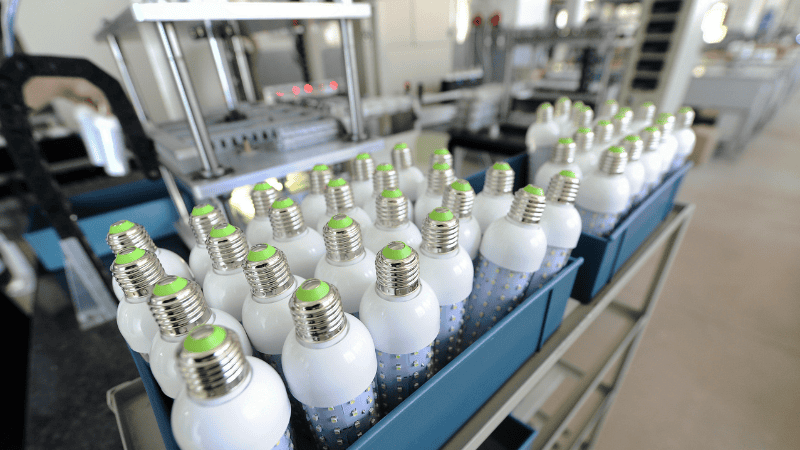
As mentioned earlier, LEDs have a long lifespan and use much less energy than traditional bulbs. This means that even though they may cost more upfront, they can save you a lot of money over time.
Thanks to lower electricity bills and fewer replacements, LED lights are a smart and economical investment for the long run.
One downside of some LED lights is that they emit a lot of blue light. This can interfere with your sleep and cause eye strain, making it harder to relax and get the rest you need.
If you are sensitive to blue light or want to protect your sleep, it’s best to choose LED lights with warm colors.
You can also use smart lighting that lets you adjust the brightness and color to a softer, more comfortable tone. Making this simple change can help you feel calmer and enjoy the restful sleep you deserve.
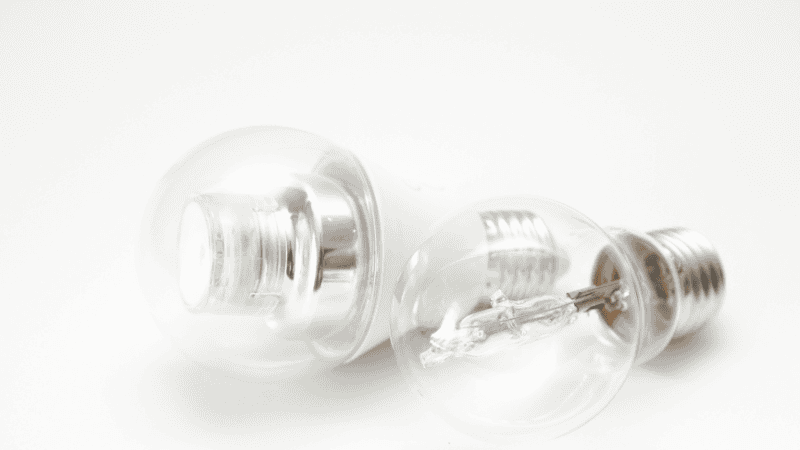
Although LED lights use less energy than incandescent bulbs, their production still affects the environment. LED bulbs require rare materials like indium, gallium, and aluminum, which are often mined in sensitive areas.
The mining, production, and disposal of these materials can harm the environment around those areas.
That is why it is important to choose LED bulbs that are made sustainably and carry eco-friendly certifications. This way, you can reduce your impact on the planet while enjoying energy-efficient lighting.
LED lights are known for their long lifespan, but they are not completely fail-proof. Poor installation, improper use, or exposure to extreme conditions can cause LEDs to stop working sooner than expected.
To make sure your LEDs last as long as possible, proper installation and regular maintenance are essential. Taking care of your lights means you get to enjoy their benefits without interruptions.
Having many color options can be both a blessing and a challenge. LEDs come in a wide range of colors, which can feel overwhelming if you don’t know what to choose.
If you prefer the simple feel of traditional incandescent bulbs, it might take some time and experimenting to find the perfect LED lighting. But the variety also means you can create a personalized lighting experience that matches your style and mood perfectly.
Many LED lights now come with smart features, allowing you to control them remotely or program them to adjust automatically as part of your smart home system.
While this adds great convenience, it can also become a problem if the LEDs are not installed correctly or if they are not compatible with your system. Using the wrong products or poor installation can cause lights to malfunction.
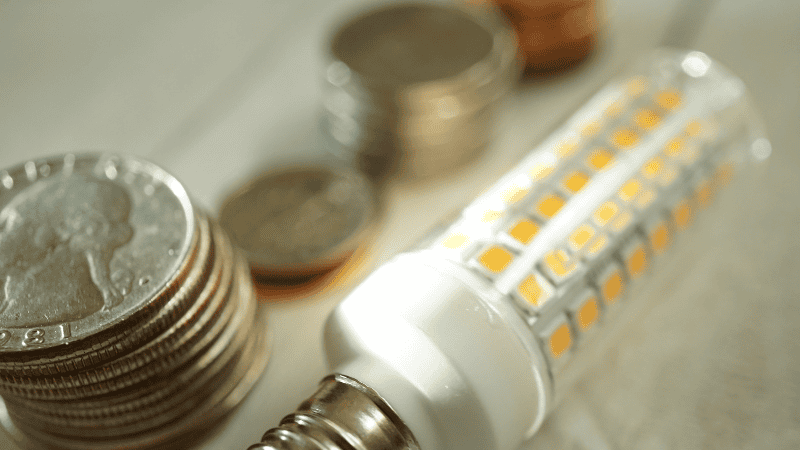
To avoid frustration and get the best performance, make sure to choose LED lights that work seamlessly with your smart home setup. This will help you enjoy the full benefits of smart lighting without any hassle.
To give you a much more comprehensive look. Here is a simplified comparison between LED lights vs Traditional Lighting.
| Feature | LED Lighting | Incandescent Bulbs | CFL Bulbs | Halogen Bulbs |
|---|---|---|---|---|
| Lifespan | 25,000–50,000 hours | 1,000 hours | 8,000–15,000 hours | 2,000–4,000 hours |
| Energy Efficiency | Uses 80% less energy than incandescent | Very inefficient and has high ambient temperatures | More efficient than incandescent but less than LEDs | Less efficient than LEDs |
| Light Output | led bulbs emit full brightness | Instant full brightness | Takes time to warm up | Instant full brightness |
| Lifetime Cost | Higher upfront, but saves money long-term | Cheap initially, expensive over time due to energy use | Moderate cost savings | Moderate savings, but still higher costs than LEDs |
Knowing the pros and cons of LED lights is a great start, but finding the perfect LED lighting for your home involves a few important steps.
First, think about the purpose of the lighting. If you need task lighting, look for LEDs with a high color rendering index (CRI) for accurate, clear colors. For a cozy, relaxing atmosphere, warm LED lights work best because they create a soft and inviting glow.
Next, make sure the LED light you choose is compatible with your existing fixtures and dimmers. This will help you avoid problems like flickering, malfunction, or having to replace fixtures.
Remember, not all LED lights are the same. Choose products from trusted brands to ensure reliable performance and lasting quality.
Even though LED lights offer a lot of advantages, like energy efficiency, longer lifespan as well and being environmentally friendly. But that doesn’t mean that they don’t come with their fair share of disadvantages, like blue light emissions, compatibility, and so on.
This is why it is important that you should know what kind of LED light you want to invest in before actually making a purchase.
Struggling to find reliable LED lighting? Stop worrying and visit Risun, a trusted LED lighting provider with solutions designed for every home and lifestyle.
Contact us today and create the perfect atmosphere in your living space with our high-quality products and expert guidance.
Q1: What is the lifespan of an LED light?
Most LED lights last between 25,000 and 50,000 hours, depending on the brand and how you use them.
Q2: Why are LED lights more expensive than incandescent bulbs?
LEDs use advanced technology to be energy-efficient and provide instant brightness, which makes them more costly upfront.
Q3: Can LED lights cause headaches?
People sensitive to blue light may experience headaches, and blue light exposure can also affect sleep.
Q4: Why do some LEDs flicker?
Flickering is often caused by incompatible fixtures or dimmers, or voltage fluctuations.
Comprehensive Lighting Solutions for MRO Wholesalers and Professionals
send your inquiry
Hi, I'm the author of this post, and I have been in this field for more than 15 years. If you want to wholesale lighting fixtures or lighting related product, feel free to ask me any questions.
Learn More >>Download our catalog to view all of our lighting products.
Ready to get started ?
Send Your InquiryOur team will get back to you promptly

please
download
Get notified about new products
Our team will get back to you promptly!
Add your first comment to this post